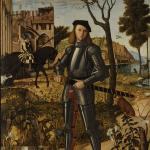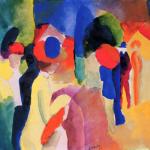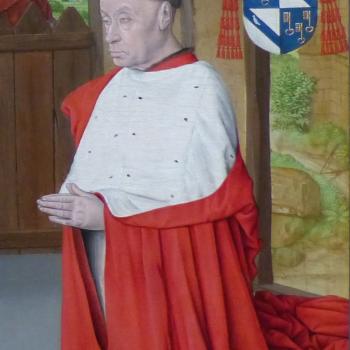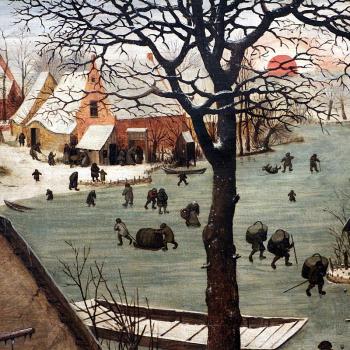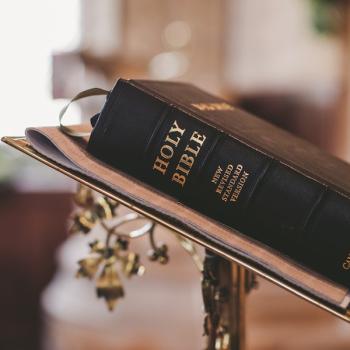These are the two accounts of the two men at the heart of the incident of 1054. Much in these accounts can be disputed. All historical evidence, and all common sense, is against Cerularius’ argument that the Roman legates were not, in fact, from Rome, and it is probable that not even he really believed it. Likewise, it can be questioned whether or not Humbert was really ignorant of the Pope’s death when he decided to take his drastic, and independent, action. Yet however these two accounts are to be blended, the events of 1054 do not represent a mythological account in anyone’s favor.
To round out our account, I will proceed to a third perspective: that of Peter of Antioch, a committed Eastern Christian, and the recipient of Cerularius’ report about the incident. In his return letter to Cerularius, Peter finds a certain amount to agree with; he finds the use of unleavened bread distasteful, and is horrified by the addition in the Creed. Yet at the same time, Peter is anxious above all to be charitable towards his Western brethren, respect their legitimate traditions, and preserve unity within the Church. When Cerularius argues that the Church of Rome has been cut off from the Church for five hundred years, Peter is utterly horrified: “I am filled with shame at your honored letter containing these things; I do not know what I should say, believe me, and especially for your sake […] because before examination and perfect apprehension you out of a rash hearing presented what is not as if it is” (Peter III). Peter knows for a fact, from eyewitnesses, that, as late as forty-five years before, the Pope had been prayed for in the Church of Constantinople (V); and he castigates the carelessness of Michael’s record-keeper, who not only mistook the Sixth Ecumenical Council for the Fifth, but also got its events completely wrong (III-IV). Then, Peter goes over each one of Michael’s charges in turn, dismissing some (“what is it to you that their High Priests shave their beards and that they wear rings?” (VI)), agreeing with a few, rejecting others by appeals to the traditions of the Eastern Church, and urging caution on all. For, Peter says, rumors are often inaccurate, and often discreditable things happen in both East and West without the consent of the ecclesiastical authorities (XVII). It is also necessary, he says, to incline always towards charitableness, especially since the Westerners are more rustic and less educated than their Eastern brothers, and have been ruled by barbarians for centuries (XIV). In summary, Peter advises Cerularius that “if they will set right the addition in the Holy Creed, I would seek nothing more” (XXII), abandoning all the other charges—including the use of unleavened bread— as ultimately indifferent. For Schism between East and West would be nothing less than a disaster; this much Peter of Antioch is sure of.
To give this third perspective—neither that of Cerularius nor that of Humbert—its due, I will end with Peter’s plea for unity and tolerance within the Church, which rings out as strongly now as it did a thousand years ago, in that strange and fateful year of 1054:
And I exhort you and beseech you and beg you and intellectually lay hold of your holy feet, so that conceding when you are too severe you might accommodate yourself to these deeds. For be afraid lest wishing to sew up a tear you make a worse schism, and laboring to set upright a fall you make a worse fall. And take care lest from this long separation and disagreement, when openly indeed this Great and First and Apostolic See of Rome has been broken off from the Holy Church among us, it happen that all evil in life be multiplied, and the whole Cosmos go badly, and the kingdoms of the whole Earth be disturbed, and there be everywhere lament, and much woe, and famines, and continuous plagues in country and city, and it happen that our armies never succeed anywhere at all.
This piece is by Nathan Smolin a Catholic Convert and current PhD student in Classics at the University of North Carolina, Chapel Hill.


